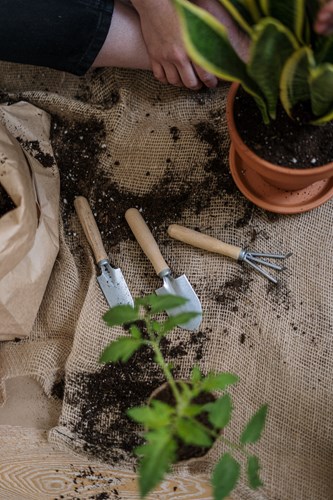
Hard times prompt people to grow their own food. And while now more than ever, as people are getting out their gardening gloves and spades, the most recent pandemic is not the only reason people are running out to plant their favorite vegetables and herbs. Stronger than fear, are factors such as growing health concerns, environmental concerns, the benefits of organic vegetables and herbs, and the sheer fact that growing your own food is fun and rewarding.
Let’s explore each factor.
Health
The world has an obesity problem. Worldwide, obesity has nearly tripled between 1975-2016. Awareness of this fact has caused many to become almost hyper-conscious about what they put in their mouth, and the trend is on the rise.
Our health is directly impacted by what we eat, making what we eat matter. Today, with so much information in the world, we want to understand things that should perhaps be trivial: what we’re putting into our bodies.
Naturally, people turn to grow vegetables and herbs. Because when you grow your own food, you’re in charge of what you grow and how you grow it. This also means, that for the most part, your vegetables and herbs won’t contain any pesticides or even fertilizers, making your home-grown garden both cleaner and safer.
Moreover, growing your own vegetables and herbs, means that you will naturally eat more fruit and vegetables. Can you imagine having ripe tomatoes on your vine and letting them go to waste? Of course not. You’re going to eat them, or at the very least prepare of a tomato sauce with them.
And we haven’t even mentioned nutrition yet. Home-grown vegetables and herbs have more nutrients than most store-bought vegetables. Because vegetables that were picked before they were ripe, then stored in freezers and moved to sit on supermarket shelves, do not have a chance at competing with the fresh, nutrient-rich vegetables you home grow and then pick from your garden.
Environment
Caring for our environment is becoming increasingly important to us, and as a result, we’ve been altering our habits. In light of the desire to be more responsible towards our environment, and creating more sustainability, a home-grown garden has translated into a type of environmental activism. It reinforces our claims that we are acting more responsibility and care about sustainability.
Home-grown vegetables produce less waste because growers are reluctant to throw out their produce. In addition, home-growers may also be prompted to compost food scraps with which to fertilize their home gardens.
When it comes to waste, home gardens stand in stark contrast to supermarkets. From the farm to the supermarket, there is a waste at every level. Being aware and informed of what causes waste does not mean that we’ll be able to eliminate it entirely, but it does mean that we can choose to make better choices about managing and reducing waste. When we choose to home-grow vegetables and herbs, we make an active choice to reduce farm and supermarket waste and pollution – from food loss to plastic packaging and pollution caused by transportation and distribution networks.
The Benefits of Organic Vegetables and Herbs
When you decide to home grow useful plants (edible plants that have more than one benefit), you are in fact choosing to enjoy the advantages of organic vegetables and herbs, which are both healthier and more environmentally friendly.
When eating organic, vegetables and herbs contain no hormones or antibiotics. In addition, organic vegetables have not been genetically modified (NON-GMO), and they contain less pesticide residue and harmful chemicals. This is certainly true for homegrown vegetables where many home growers prefer to use little or no pesticides.
Because it’s fun
Growing your own herbs and vegetables is relatively easy and fun. Some will choose to have their own outdoor garden; others will choose to have an indoor planter in which to grow small crops and/or herbs. But whichever you choose, there is no doubt that you will find it fun and fulfilling.
In fact, home-growing vegetables are not only fun and satisfying, but it is also known to release stress, boost self-esteem, and improve mental health. And for families with children, home growing vegetables and herbs provides endless opportunities to help children develop curiosity and teach them about eating healthy, the environment, ecology, decision making, and the list goes on, not to mention the beautiful bonding opportunities that arise when families work together to create something the entire family benefits from.
Hishtil’s grafted vegetables make home-growing vegetables a practically full-proof and successful endeavor. With grafted vegetables, even the weakest varieties of vegetables become stronger, making them grow more reliably, and even giving them the ability to produce better yields.
As technology and this most recent pandemic force us to take a better look at our lives and even infuse it with more fun and meaning, home-growing vegetables become a more attractive way to have fun and act more responsibly and sustainably, while caring for both our physical and mental health.
